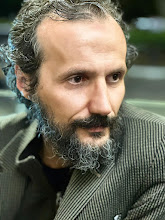10 Eylül 2009 Perşembe
THE SEVENTY-SECOND DISCOURSE On those who are attracted to what they see in the market and those who view it with patient restraint
Those who go to the markets from among the people of religion, in
observation of the institutions of religion, or in performance of such
commandments of God as those concerning the congregational prayers on
Friday, or other religious congregations, or to fulfil other needs with which
they may be confronted, are of several kinds.
Some of them are such that when they go to the market and see in
it various kinds of provisions for the gratification of the senses and for
enjoyments, are captivated thereby and their hearts become entangled
therein and they thus fall into trial; and this becomes a cause of their ruin
and of their discarding religion and its institutions and makes them incline
towards yielding to their lower nature, and towards following their passions
unless of course God looks after them by His mercy and protecting power
and by His providing them with patience to struggle against these
temptations; it is by this means that they can remain safe.
Then there are others among them who, when they see these things
and are on the point of being ruined, return to their reasoning sense of
religion and exercise self-control with an effort and drink the bitterness of
discarding them. They are like valiant, warriors in the cause of religion
who are helped by God to assume control over their own selves and
natures and desires and passions. God awards them an abundance of
reward in the life after death.
"In this connection we have it in some of the traditions handed
down by the Holy Prophet (peace and blessings of Allah be on him):
"Seventy acts of virtue are recorded to the credit of a believer on
his discarding the urge of passion while he is overpowered by it or
when he overpowers it."
In another saying of his, we read similarly:
"Some of them there are who obtain these enjoyments and
appropriate them and acquire them by the favour and blessing of
God in the shape of affluence and of worldly wealth and give
thanks to God, the Mighty, the Glorious, on account of them."
There are still others who neither see, nor are aware of these
enjoyments: they are blind to everything except God, the Mighty, the
Glorious; so they do not see anything besides Him, and they do not hear
anything besides Him. They are too engaged to consider anything except
the Beloved and their urge for Him, and so they are far away from what
keeps the world occupied. When you see such persons entering the market
place and you ask them what they see in the market, they will say: "We do
not see anything." Yes, they do see things, but they see them with their
physical eyes and not with the eye of desires. The sight is of the appearance
and not of the reality. It is an outward sight, not an inward one. So
outwardly he sees what is in the market while in his heart he sees the Lord
— sometimes His Glory and at others His Grace.
There are still others who, when they enter the market place, find
that their hearts are filled on account of God, the Mighty, the Glorious,
with mercy for the people in it. This pity for the people of the market keeps
them too occupied to look at things which belong to these people and
which are before them. Such people remain engaged, right from the
entrance up to the time of their exit, in prayer and in seeking the protection
of God and intercession for its people, in an attitude of affection and
mercy. Their hearts burn to seek their benefit and to prevent their loss, and
their tongues remain engaged in the praise of God on account of all that He
has given them from His blessings and favours. Such people are called the
spiritual guards of the cities and the servants of God. If you like, you can
call them men possessed of knowledge and abdal and men of piety and
knowers of the unseen, the seen, His beloved, and His finished object, and
His vicegerents on earth appointed over His servants, His ambassadors and
executors of good, sweet of expression, guides, rightly-guided people and
spiritual instructors. A person of this class is, so to speak, a philosopher's
stone and the egg of a magpie. The pleasure of God and His blessings be
on such a person and on everyone who has set his face towards God and
who attains the summit of spiritual elevation.

